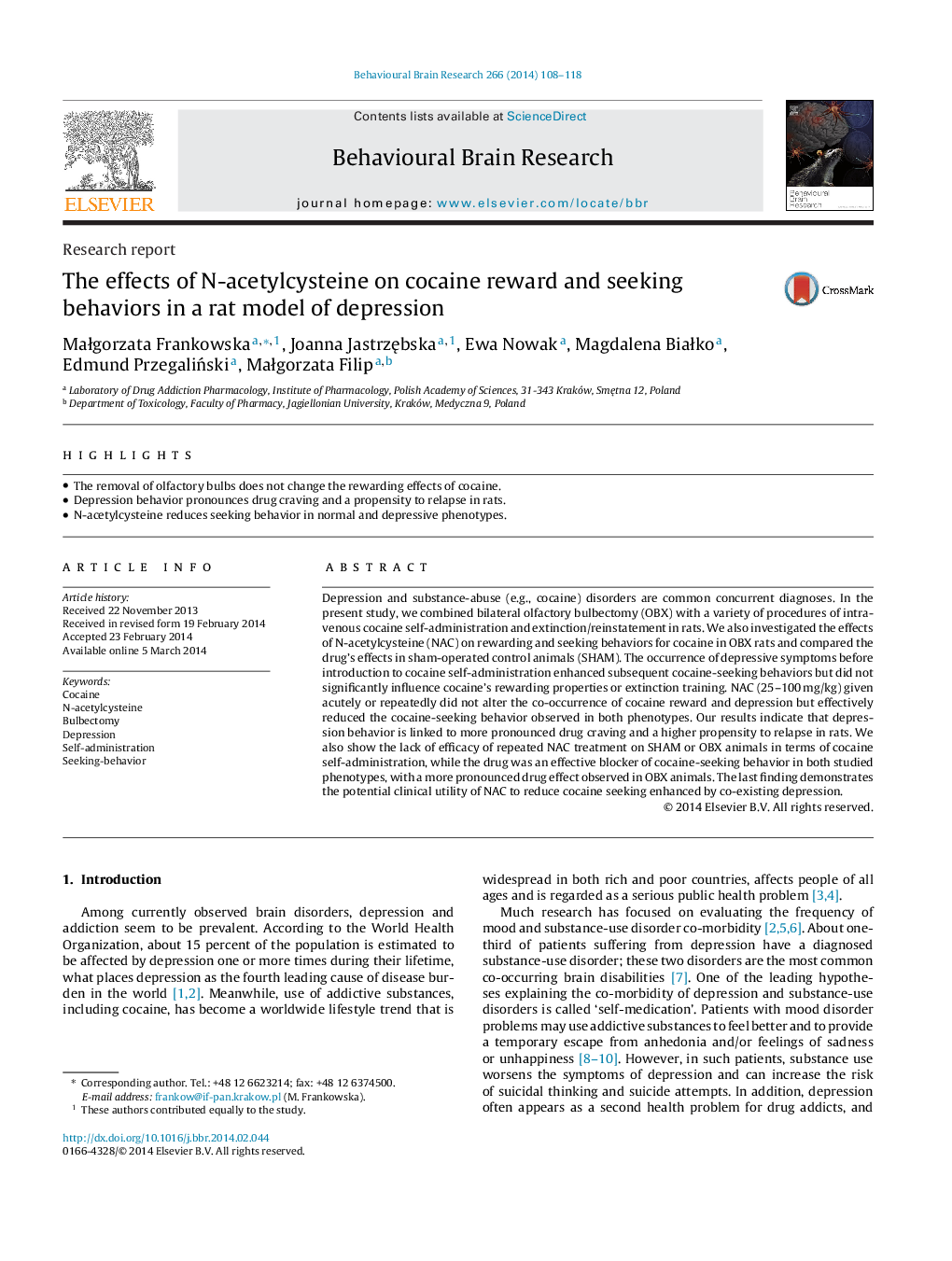| Article ID | Journal | Published Year | Pages | File Type |
|---|---|---|---|---|
| 6258199 | Behavioural Brain Research | 2014 | 11 Pages |
â¢The removal of olfactory bulbs does not change the rewarding effects of cocaine.â¢Depression behavior pronounces drug craving and a propensity to relapse in rats.â¢N-acetylcysteine reduces seeking behavior in normal and depressive phenotypes.
Depression and substance-abuse (e.g., cocaine) disorders are common concurrent diagnoses. In the present study, we combined bilateral olfactory bulbectomy (OBX) with a variety of procedures of intravenous cocaine self-administration and extinction/reinstatement in rats. We also investigated the effects of N-acetylcysteine (NAC) on rewarding and seeking behaviors for cocaine in OBX rats and compared the drug's effects in sham-operated control animals (SHAM). The occurrence of depressive symptoms before introduction to cocaine self-administration enhanced subsequent cocaine-seeking behaviors but did not significantly influence cocaine's rewarding properties or extinction training. NAC (25-100Â mg/kg) given acutely or repeatedly did not alter the co-occurrence of cocaine reward and depression but effectively reduced the cocaine-seeking behavior observed in both phenotypes. Our results indicate that depression behavior is linked to more pronounced drug craving and a higher propensity to relapse in rats. We also show the lack of efficacy of repeated NAC treatment on SHAM or OBX animals in terms of cocaine self-administration, while the drug was an effective blocker of cocaine-seeking behavior in both studied phenotypes, with a more pronounced drug effect observed in OBX animals. The last finding demonstrates the potential clinical utility of NAC to reduce cocaine seeking enhanced by co-existing depression.
